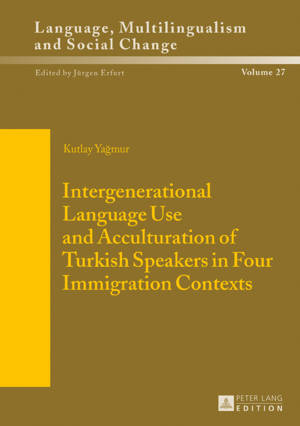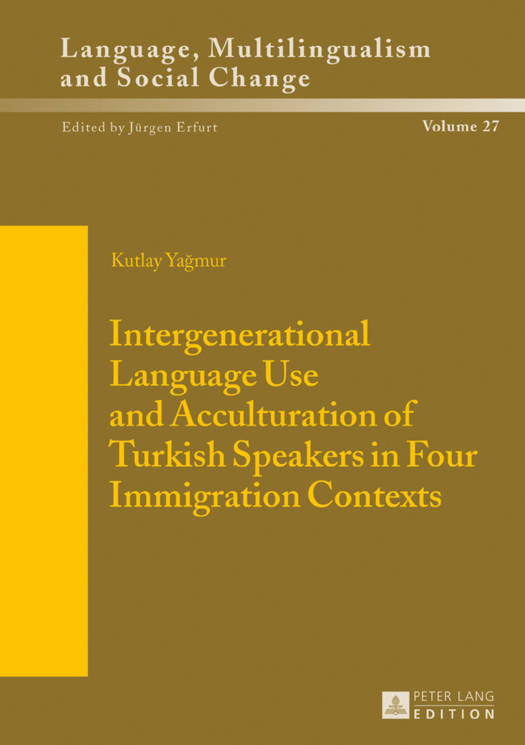
- Retrait gratuit dans votre magasin Club
- 7.000.000 titres dans notre catalogue
- Payer en toute sécurité
- Toujours un magasin près de chez vous
- Retrait gratuit dans votre magasin Club
- 7.000.0000 titres dans notre catalogue
- Payer en toute sécurité
- Toujours un magasin près de chez vous
Intergenerational Language Use and Acculturation of Turkish Speakers in Four Immigration Contexts
Kutlay YağmurDescription
Immigrant integration dominates the social, political, and scientific agendas of immigrant-receiving countries. Integration requires mutual co-ordinated efforts of both the host and immigrant groups. This book presents a macro level perspective on language maintenance, shift and acculturation orientations of Turkish immigrants in major immigration contexts, namely, Australia, France, Germany, and the Netherlands. The findings show a close relationship between the integration ideology, policies and practices of the receiving societies and the acculturation outcomes of immigrants. Intergenerational differences in language use and choice as well as acculturation orientations of Turkish immigrants in the four national contexts have serious implications for policy makers and researchers.
Spécifications
Parties prenantes
- Auteur(s) :
- Editeur:
Contenu
- Nombre de pages :
- 340
- Langue:
- Anglais
- Collection :
- Tome:
- n° 27
Caractéristiques
- EAN:
- 9783631663707
- Date de parution :
- 19-09-16
- Format:
- Livre relié
- Format numérique:
- Genaaid
- Dimensions :
- 147 mm x 211 mm
- Poids :
- 635 g

Les avis
Nous publions uniquement les avis qui respectent les conditions requises. Consultez nos conditions pour les avis.






